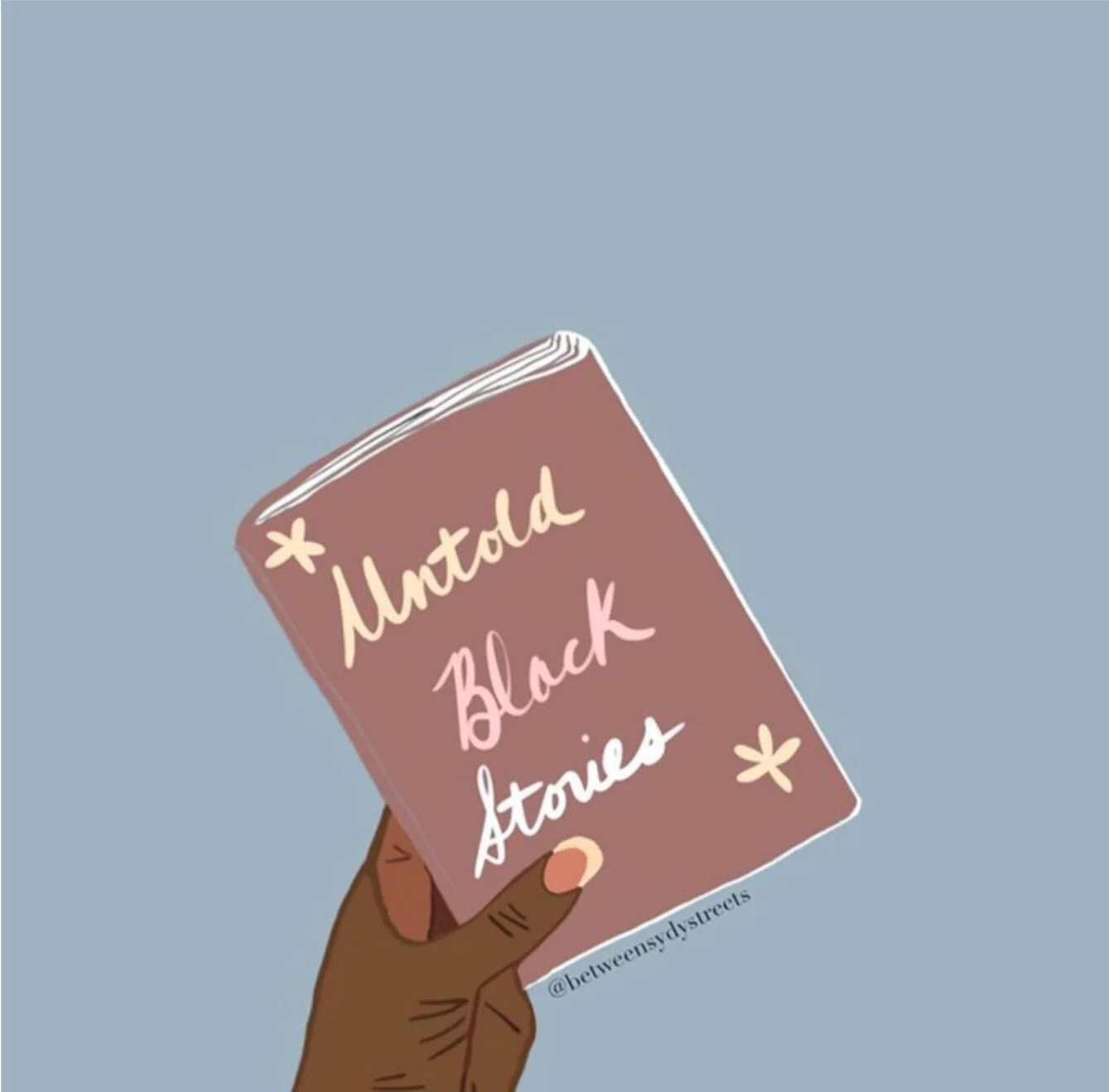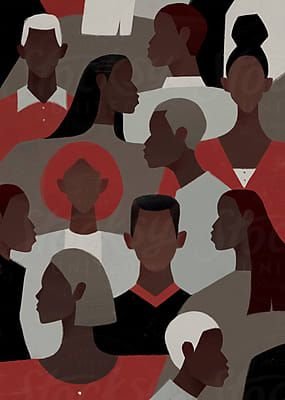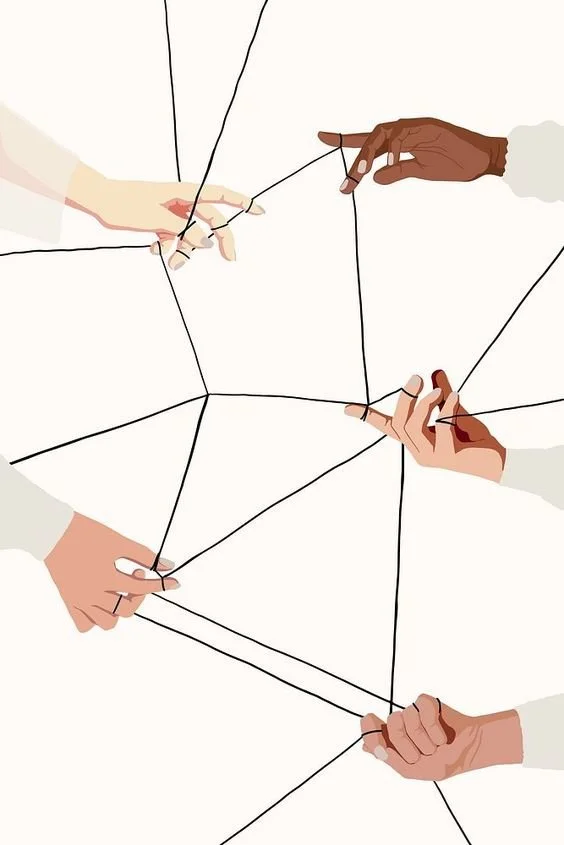Ever Had a Black Teacher?
/Answer me this: Have you ever had a Black teacher?
Most of those I’ve asked—with only two exceptions—share that they haven’t ever had a Black teacher. I didn’t have one until I was a sophomore in college, which was especially fitting because it was for a Black Literature class.
Professor Jennifer James was her name and she quickly became one of the best professors I have ever had. She exposed me to Black literature and history that I would have never been aware of otherwise. My classroom, rare in that it was filled to the brim with #blackgirlmagic, became a sanctuary. There, we shared some of our most personal experiences of being Black and female in America. Day after day we were exposed to one primary source after the next of our ancestors’ lived experiences from slave narratives and manifestos, to poems and actual voice recordings of the formerly enslaved. We groaned at the end of each class as though we were young children pleading for just one more story at bedtime. I had never experienced a classroom like that before.
One thing that class proved? Black educators are unicorns and that is to the disadvantage of the U.S. school system and the country at large.
Archaic in its approach to instruction, U.S. schools are essentially factories. Workers — excuse me, students — are tested, row by row, on their ability to follow orders and memorize one direction after the next. The winner is the laborer that was best able to replicate the floor boss’ — excuse me, teacher’s — original demonstration correctly, the most times (Serafini, 67). There is a right and wrong answer for nearly every query and information beyond the instruction booklet — excuse me, curriculum — is quickly shot down. This is no way to learn.
If our current workforce is judged primarily on their ability to collaborate, present, and think critically, raising our students within a factory model of schooling only serves to prevent them from excelling later in life. To combat this, I believe that a blended introduction of culturally responsive curricula, Black educators, and national adoption of a project-based learning model would all serve to positively impact and transform the U.S. school system as we know it.
There is only so much that a high school student can learn from yet another class reading of F. Scott Fitzgerald’s, “The Great Gatsby.” From first to twelfth grade, that book was featured in my curriculum a grand total of five times. If not white American classics, my classmates and I were forced to declare, “To be or not to be,” every two years. Just like Black educators, Black writers are also mythical creatures. I had never read a book, in an academic capacity, written by a Black author until Professor James’ course.
No, instead, my teachers were more focused on teaching literature and history that aligned with the American narrative as it had been sold. Instead of learning that slavery was central to the Civil War, my classmates and I were taught that states’ rights were its focal point. American exceptionalism is the foundational rhetoric from which our country chooses to educate its youngest minds. I bear no bad feelings towards my past teachers. They were not presented with the option to teach culturally responsive and racially sensitive lessons, nor were they trained how. When the opportunity presented itself to enrich class lectures with additional information, they leapt at it. I am grateful for this, but I am also painfully aware that they are the exception to the rule. According to the National Center for Education Statistics, in 2016 — my junior year of high school — some 20 percent of students in grades 1–12 were enrolled in public schools chosen by their families, some 71 percent of students attended an assigned public school, and 9 percent attended a private school. My private school education secured my being the minority within the minority.
Think about it, that’s 91 percent of young, American minds likely being exposed to a false chronicle of U.S. prowess in an almost brainwashing manner — given our country’s historical support of memory and test-based learning — that refuses the opportunity for learning outside a curriculum’s assigned lessons. This decision to almost entirely address American virtues, disregard American failures, and exclude Black voices — key contributors to the American story — from the teaching and sharing of the true narrative, stunts our growth as a nation in more ways than one.
One such way is that it bolsters the continued racist behaviors promulgated by the implicit bias of white Americans. Black teachers benefit everybody. Exposure to individuals from all walks of life can reduce stereotypes, prevent unconscious bias, and prepare students to succeed in a diverse society (Rizga, Hechinger Report). White youth that find themselves in predominantly white neighborhoods and schools are ignorant to the diversity beyond the borders of their oases. Many are unaware of the underlying systemic racism that courses through the veins of this country. They are ill-equipped to handle the myriad of problematic and racist rhetorics they are met with each and every day. Whether it be from the culture-appropriating entertainment media that pollutes them into believing that wearing cornrows and singing the N-word in a song is A-OK behavior, or their literal geographic segregation from Black communities, white youth are dreadfully behind when it comes to truly understanding what racism looks like and how it feels.
The history and English classes that we all take aren’t helping matters. The singular dictation of the American story harms both white and Black students. Why are we not persuaded to engage in discussion about how the United States government decimated the Native American community? Why must I beg to learn about my ancestors’ experience, beyond the ball and chain of slavery and Jim Crow? Why is Latino history an after-thought in these classes? The exposure to diversity in the classroom is universally valuable to all pupils.
When it comes to Black students, a lack of diversity in the classroom prevents them from being able to articulate the “otherness” they so often feel within. We know we are different from our white peers, but without the history to develop the words to name these feelings, we are left paralyzed, unable to defend ourselves from the almost daily onslaughts of racialized interactions. Increasing the presence of Black voices in the classroom, whether it come from Black teachers, Black-authored books, and/or culturally responsive curricula that current teachers are trained to teach, is key to healing this issue.
Every class I had with Professor James was an emotional whirlwind as my classmates and I began to discover the truth. We had been exposed to a plurality of Black voices and depictions of their past lives through the likes of Phyllis Wheatley, Paul Laurence Dunbar, and Harriet Jacobs. Finally, we could let go of the false truth of the singular Black story in America — a collective enslavement of body and mind.
“You’re not supposed to be so blind with patriotism that you can’t face reality. Wrong is wrong, no matter who does it or says it.”
Malcolm X was right. The United States has done plenty of things right, but it has also done plenty of things wrong. This is nothing new. All countries are in this position. The issue comes when our country chooses to remain ignorant of its wrongs. Its behavior, in regard to education, profiteers patriotism. It distorts the truth to cultivate a false chronicle of American prowess; admitting defeat only when it led to ultimate victory. Dissent made against this model is deemed unpatriotic and, therefore, against what it means to be American. I ask, though, if what it means to be an American is to hide the truth and develop a fallacy so complex and weave it into the curricula from which our children are taught, then does that not point to an enormous vulnerability in our country’s ego?
Compare this to Germany, for example, who is known for teaching its pupils about the devastation its past leadership caused against Jews and the country as a whole. There is an enormous lack of national accountability in the United States. Our country’s track record of dismissing and/or remaining ignorant to our mistakes makes us weak.
Do not misunderstand. There is nothing wrong with teaching American students about the good their country has done. In fact, I believe that it is important that we do. Patriotism is not a virus. It becomes one when it is bred in an environment that chooses to practice it blindly. In order to truly stand for something, you must be fully informed about it; you have to know the good and the bad. Otherwise, you risk the likelihood of being discredited when you can’t engage in debate and clearly name why what you are advocating for matters.
I want our students to be able to engage in complex conversations at school and for teachers to be trained to be able to mediate these classroom debates. Students’ demands for relevant “real world” applications of what they are learning need to be answered. Why do physics and basic geometry matter? Students should know more about the Civil Rights Movement beyond Dr. Martin Luther King Jr. Tell me who Fannie Lou Hamer and Percy Sutton were. All of United States history should be given time in class.
Our current political moment, and indeed our nation’s history, demands that both a rigorous lesson and a culturally responsive one become mainstays in our classrooms (Smith).
Do away with the heavy reliance on metrics and instead assess students’ brilliance on their ability to write, argue their position, present their research findings, collaborate on group work, and think creatively. Expose American youth to non-/fictional Black-authored pieces, from poems and books, to slave narratives and autobiographies. Stop telling them only one story exists.
Exposure encourages diversity of thought which, in turn, inspires new pathways for learning. Why stifle that?








